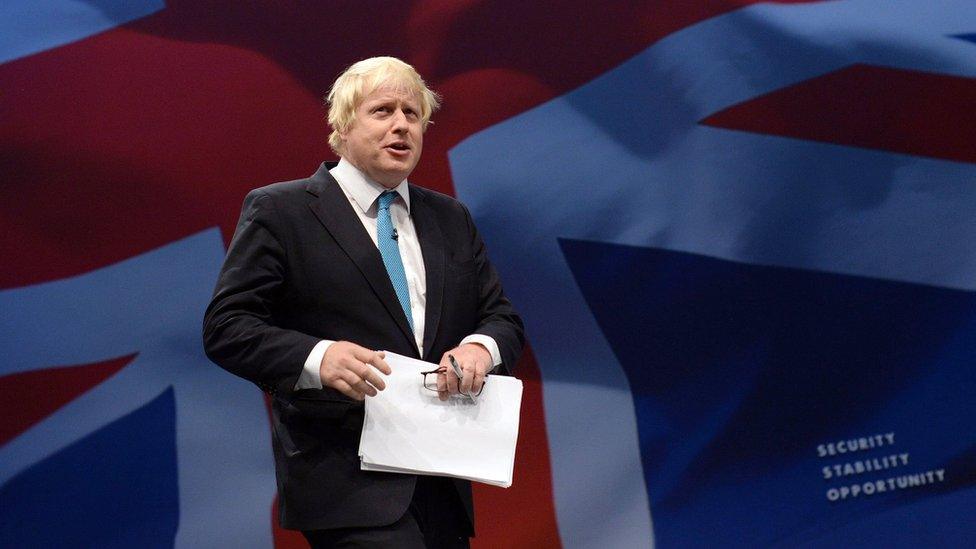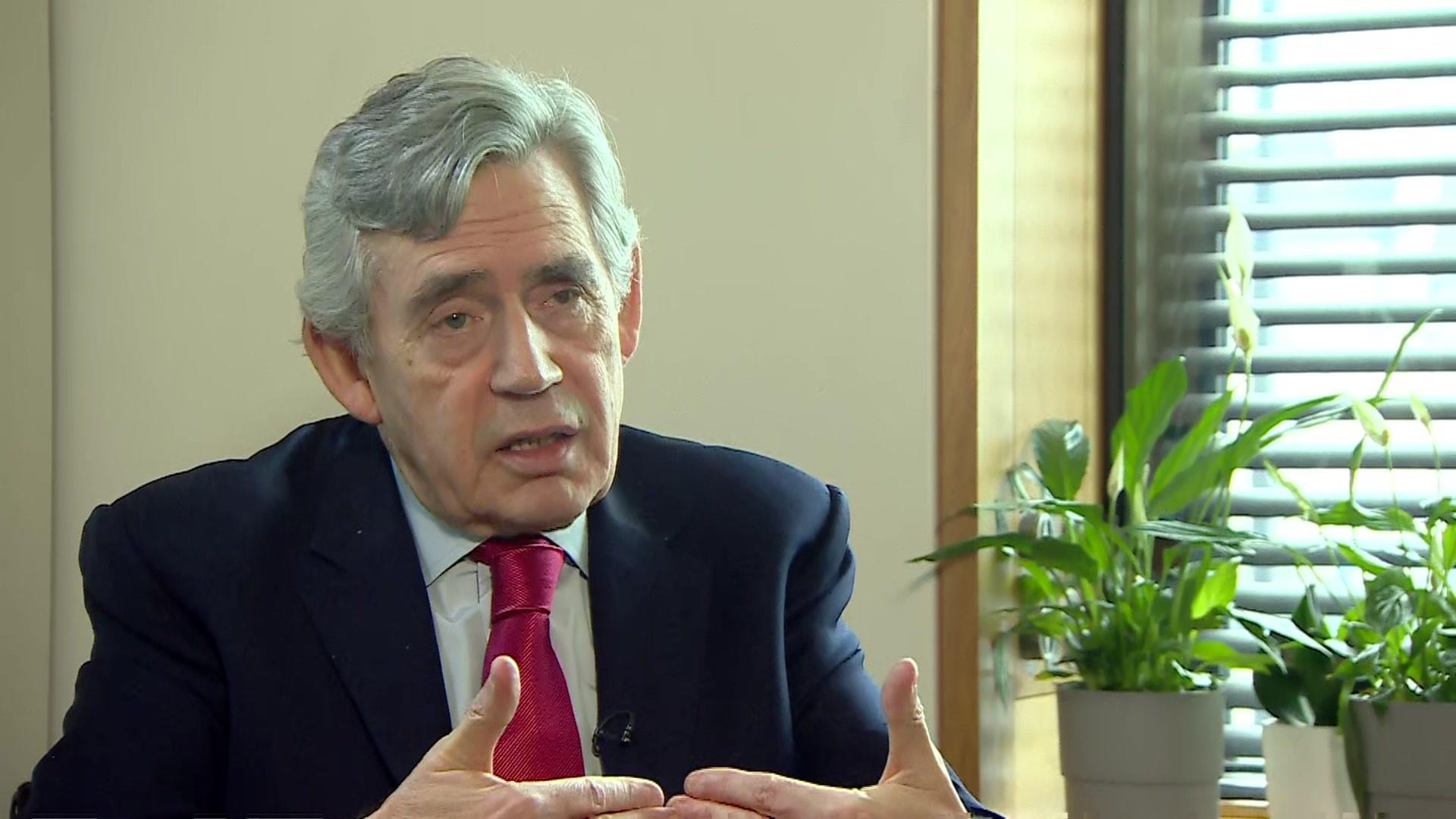Can Boris Johnson calm fears for the union?
- Published

We have heard former Prime Minister Gordon Brown make the case before that the rest of the political establishment should pay more attention to the fraying bonds between different parts of the UK.
We have also heard the ex-Labour leader suggest, on many occasions, that if Westminster's tribes don't take the notion of giving power away seriously, they might find that before too long, the people who give them their votes may make decisions they don't like very much.
There is of course a certain irony to this - that this previous PM, who sought for years to expand, and then cement, his own power base in a certain Georgian terrace in Central London - handy for the Commons - might argue repeatedly and forcefully for influence to be more evenly shared around.
But politics would be nothing without quirks of fate...
What's different this time is not just that the SNP again swept the board in Scotland and is arguing forcefully for another referendum, but there is a new prime minister who is promising to reset the lopsided UK.
There is not a chance that Boris Johnson will grant the SNP that second vote. But might this current PM come forward anytime soon with anything that might satisfy the former occupant of the job?
Senior figures in government are aware they can't just stick with a position of saying no to a referendum again and again, but not to say yes to anything else, one said.
What that "something" would be is harder to fathom though.
How the union works
As if by magic, there is already a government review in existence, written by the Conservative peer Lord Dunlop, looking at strengthening the union.
It was commissioned by Theresa May to look at how the whole union works, not just the fraught relationship between Holyrood and Westminster.
The completed review has, I'm told, made its way to No 10 already.
It's not clear yet if it has entered the prime minister's red box itself for his perusal. But sources close to the process hope that it might see the light of day in the coming weeks.
I'm told it doesn't continue a big proposal for a new government "Department for the Union" - as has been suggested before - but there could be proposals to give a senior government minister explicit clout to make the four nations work better together.
It's expected too that it will argue for more political visibility for the government in the devolved parts of the country, with secretaries of state holding more regular meetings around those parts of the UK and trying to work much more overtly alongside the devolved administrations.
It seems likely the report will recommend a change in attitude though, more than any huge overhaul of the machinery.
The Conservatives election win was not 'a signal that the country is at ease' warns Brown
One source suggested there is "no point trying to go to war" with the SNP in Holyrood, but better to try to find practical ways of getting the two sides to work together more fruitfully.
Another Tory insider suggested the important thing is to make it feel as if Scotland is being taken into consideration properly by No 10, with a much more proactive attitude.
A different source joked: "It can't be about plastering the Union Jack on things and a World Cup bid - it needs to be properly strategic [with] serious political engagement on the ground."
This particular piece of work, of course, could be totally ignored, joining many other earnest bits of work done for government that now gather dust on a shelf.
Alternatively, it could provide the start of a way of doing business differently between Downing Street and the rest of the UK.
But irrespective of this particular process, whether the union works in this new political era is a question that Mr Johnson will have to try to answer.
Mr Brown is far from the only one who wants to know what the response will be.
- Published20 January 2020

